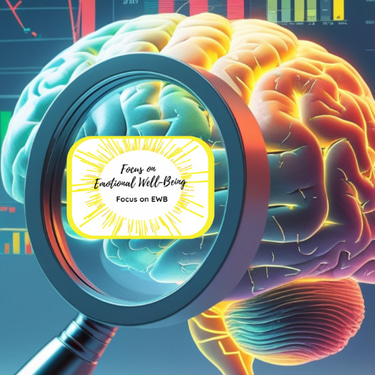Why Your Mind Matters for Your Body: The Hidden Link Between Stress and Inflammation

Feeling overwhelmed and stressed has become almost routine in today's fast-paced world. Many carry stress regularly, whether it's work deadlines, personal challenges, or daily annoyances. But what if I told you that this mental strain is not just trapped in your mind, it’s affecting your physical health too?
Recent research published in Brain, Behaviour, and Immunity in 2018 highlights a fascinating and powerful connection: chronic psychological stress can increase levels of inflammation in your body, which is linked to many health issues like heart disease, autoimmune disorders, and even depression.
How Does Stress Turn Into Inflammation?
When you experience stress, your brain responds to help you handle danger, releasing hormones such as cortisol and adrenaline. This "fight or flight" response is helpful in short bursts. But when stress becomes constant, these hormones stay elevated, and your immune system gets out of balance.
The study shows that ongoing stress activates specific regions in the brain responsible for processing emotions, especially the amygdala. When these areas are overactive, they send signals that raise inflammatory cytokines—proteins that promote inflammation in the bloodstream. Essentially, your brain’s response to stress can turn your immune system into a chronic inflammatory state.
Why This Matters
This connection explains why chronic stress is often linked to sustained health problems. It isn’t just about feeling anxious or overwhelmed—it’s about what is happening at the cellular level. Persistent inflammation can damage tissues, contribute to plaque buildup in arteries, and influence mental health in a vicious cycle.
What Can We Do?
The good news is that we can actively work to reduce stress and its impact. Practices such as mindfulness meditation, deep breathing, regular exercise, and even social connection can calm the activity of stress-related brain regions and reduce inflammatory markers.
Takeaway
The 2018 study makes it clear: your mind and body are inseparable. Managing your mental health isn’t just about feeling better emotionally; it’s also crucial for your physical well-being. Taking time for relaxation and mindful practices can be powerful tools to keep inflammation and health issues at bay.
Next time you feel overwhelmed, remember that caring for your mind is caring for your body. Prioritize your mental health, and your whole self will thank you.
Reference: Brain, Behaviour, and Immunity, 69, 365–373.
Psychological Stress and Inflammation (2018): Study: Kuo, B., et al.
